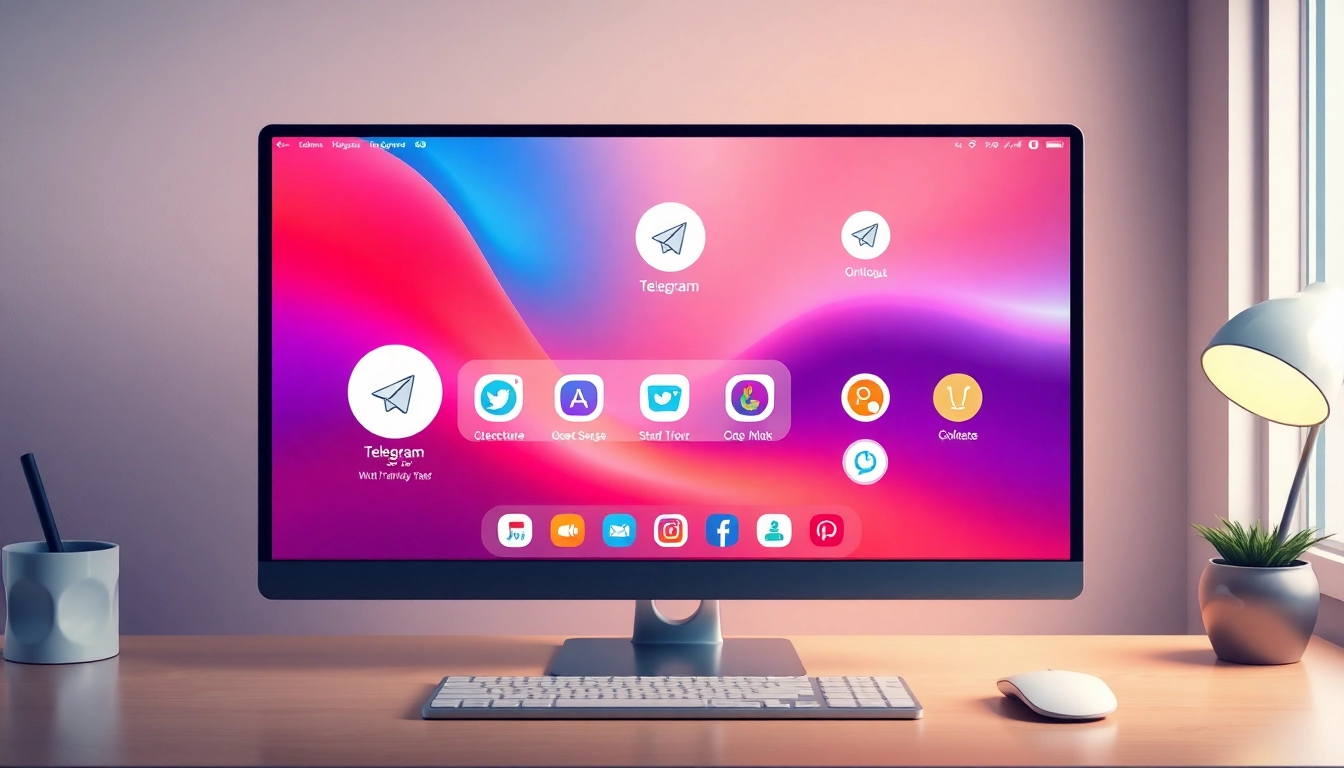Understanding Residential IT Support
As technology becomes increasingly integrated into our daily lives, the need for reliable technical assistance grows, particularly in residential settings. For homeowners who depend on various devices such as computers, tablets, and smart home gadgets, maintaining these systems is essential. Residential IT support encompasses a variety of services designed to ensure smooth operation and minimize downtime. This article will delve deeply into the concept of residential IT support, its necessity, benefits, and how to choose the right service provider.
What is Residential IT Support?
Residential IT support refers to technical assistance provided to individual consumers in their homes. Unlike business IT support, which focuses on optimizing technical systems for businesses, residential IT support deals with personal technology needs. This can include help with computer issues, network connectivity, installation of devices, and overall tech education for users.
Residential IT support can take various forms, such as remote troubleshooting, onsite assistance, and ongoing maintenance services. These services aim to enhance the efficiency of personal technology systems, ensuring they operate at peak performance.
Who Needs Residential IT Support?
Residential IT support is beneficial for a diverse range of individuals. Here are some groups that particularly benefit from these services:
- Busy Professionals: Individuals who work from home often find themselves needing quick solutions to technical issues that can interrupt their workflow.
- Families: Households with multiple devices require consistent maintenance and troubleshooting as children and adults alike utilize technology for education, work, and entertainment.
- Seniors: Older adults may struggle with the complexities of modern technology and can greatly benefit from personalized assistance.
- Home Office Users: As remote work becomes more common, users setting up dedicated home offices may need guidance in creating an efficient tech environment.
Benefits of Residential IT Support
The advantages of utilizing residential IT support services are numerous:
- Expert Assistance: Access to knowledgeable professionals who can resolve issues efficiently and accurately.
- Time-Saving: By outsourcing tech support, homeowners can focus on their personal and professional lives without the hassle of managing tech issues themselves.
- Increased Productivity: A well-functioning system allows individuals to work and play without interruptions, enhancing overall productivity.
- Personalized Service: Support can be tailored to fit individual needs, ensuring that users receive the help they need to excel in their use of technology.
Common Issues Addressed by Residential IT Support
Residential IT support tackles a variety of technological issues that homeowners face on a daily basis. Here are some common problems where residential IT support can be invaluable:
Network Connectivity Problems
One of the most common issues faced by homeowners is connectivity problems. A slow or unreliable internet connection can be frustrating, especially as more services become internet-dependent. Residential IT support provides providers who can diagnose and resolve these issues quickly. This may include troubleshooting hardware like routers and modems, optimizing network settings, or even upgrading equipment to ensure a stable connection.
Device Setup and Configuration
Setting up new devices can sometimes be a daunting task for non-technical individuals. Whether it’s a new computer, smart device, or home network, residential IT support professionals can assist with installation and configuration. This can entail connecting devices to the network, installing necessary software, and ensuring that security settings are correctly applied to protect against vulnerabilities.
Software Troubleshooting
Software issues are another typical hurdle for residential users. This can range from system crashes, virus infections, application errors, to general performance slowdowns. Residential IT support specialists are equipped with the tools and knowledge to resolve these problems effectively. They can often provide antivirus solutions, system cleaning, and optimize settings to enhance software usability.
How to Choose the Right Residential IT Support
Given the variety of residential IT support providers available, making a choice can feel overwhelming. However, following a systematic process can help streamline this decision:
Evaluating Service Providers
Start by assessing potential service providers based on their expertise, service offerings, and customer support processes. Look for providers that specialize in residential services rather than general business support to ensure they are equipped to deal with home-related technical issues.
Understanding Pricing Models
Pricing is a key factor when selecting a residential IT support provider. Many companies offer a range of pricing structures, such as hourly rates, flat fees for specific services, or subscription-based models. It’s essential to understand what is included in these fees and ensure that the pricing aligns with your budget and needs.
Assessing Customer Reviews and Testimonials
An effective way to gauge the reliability of a support provider is to read customer reviews and testimonials. Prioritize providers with positive feedback and a proven track record of successfully helping residential clients. Asking for recommendations from friends and family can also lead you to trusted service providers.
Enhancing Your Home Tech Setup
In addition to addressing immediate technical issues through residential IT support, homeowners can take proactive steps to enhance their tech setup. Here are some tips to improve your home technology environment:
Optimizing Home Networks for Better Speed
To ensure high-speed internet throughout your home, consider performing an audit of your network setup. Position routers in central locations, minimize obstructions, and consider upgrading to mesh networks if you have a large area to cover. Regularly rebooting the router and updating firmware can also help maintain optimal performance.
Essential Tools for Residential IT Support
Home technology can benefit from a variety of tools and applications that enhance performance and security. Tools such as reliable antivirus software, system optimization applications, and backup solutions should be part of every homeowner’s toolkit. These software programs can help provide a smoother experience and protect your devices from threats.
Regular Maintenance Tips for Longevity
Routine maintenance can extend the lifespan of your technology and reduce the frequency of issues. Regularly update software, perform disk cleanups, and check hardware for wear and tear. Scheduling periodic consultations with a residential IT support provider can ensure that your systems remain in optimal working condition.
The Future of Residential IT Support
As technology continues to evolve, so too will the landscape of residential IT support. Several emerging trends and technologies are shaping the future of home IT assistance:
Emerging Technologies in Home IT Solutions
Innovations such as artificial intelligence and machine learning are beginning to play significant roles in residential IT support. Automated diagnostic tools and smart home technologies can help identify issues before they escalate, allowing for quicker resolutions. Additionally, advances in cybersecurity will shape how residential IT support adapts to new cyber threats.
Trends in User Preferences
As remote working becomes more prevalent, homeowners are increasingly seeking personalized, on-demand IT support. This shift towards flexibility means that providers may need to adapt their services to meet changing consumer expectations, such as offering more remote assistance options.
Preparing for Remote Assistance Options
Remote assistance has proven to be a time-efficient and effective method for resolving many technical issues. Homeowners should familiarize themselves with tools such as screen sharing and remote desktop applications that enable technicians to diagnose problems quickly. Understanding these options can enhance your experience when working with a residential IT support provider.



